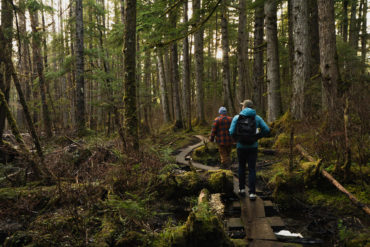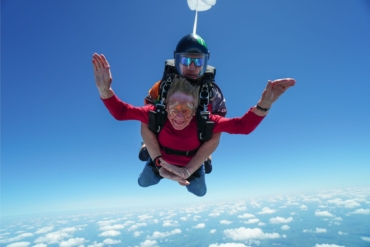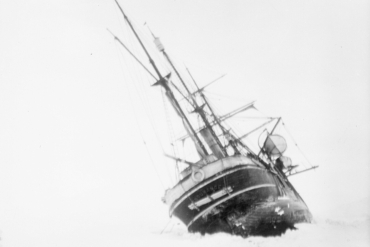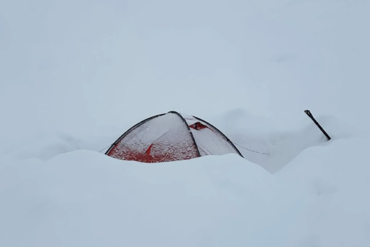By WILL GRAY
Nine international teams made the trip last month to southern Chile to start the 2009 Wenger Patagonian Expedition Race. Ten days later, one team had swum for their lives in an icy river, one lived off wild berries after getting lost for days, one was beaten by a swarm of bugs, and only three truly made it to the finish line. Welcome to the toughest and wildest race on Earth…
The Wenger Patagonian Expedition Race sits at the pinnacle of adventure racing, a sport where teams battle through wilderness courses with trekking, paddling, mountain biking, and backcountry navigation. This year’s race — February 10 – 20 from Torres del Paine National Park to Cape Froward on the tip of the South American continent — put competitors in some of the world’s deepest wilderness with only a map and a compass to guide for days on end between five checkpoints spread across a 590-kilometer course.

Biking toward the tip of the South American continent
Between the start line and the finish stood kayaking on the ocean in huge swells; more than 200km of mountain biking; rope ascents; and almost 200km of trail-less trekking though the Patagonian wilds. Say it quickly and all that might not sound too tough. But with the winning team aiming to complete the course in six days, that meant taking on an average of 100km per day, racing non-stop in a variety of disciplines, sleeping only a few minutes or a couple of hours at a time, and facing inevitable injuries, sleep-deprived hallucinations, hunger, and hostile team arguments as sanity slowly wears down.
Reigning champion Team Easy Implant — a French squad whose captain, Bruno Rey, was returning despite almost drowning in the 2008 event — were race favourites. They brought experience of the unique Patagonian environment plus had hired an American pro, Jari Kirkland, as their female teammate (all teams were required to be co-ed).
The other eight teams included well-known outfits like Team Buff of Spain (winner in 2006) and Helly Hansen Prunesco, a young team from the UK led by a steely female racer, Nicola Macleod. Both were sniffing for victory, while the American Team Calleva was also in the frame with a strong team including experienced captain Mark Lattanzi.
Unlike Primal Quest and other expedition-length races, a lack of prize money keeps most top adventure racing teams away from Patagonia. A wooden medal, a Wenger watch, and a crystal trophy were the prizes for this year’s race – but it is the allure of participating in the most remote and wild race left on the planet that is the real draw.

Racers faced an 18km kayak portage
And so on February 10, in blasting winds and angled sleeting rain, the field of 36 adventurers awaited the whistle that would let teams jump in their kayaks to begin the latest edition of the Wenger Patagonian Expedition Race. The white-capped water immediately whipped the kayaks, blown sideways by the wind, into full flow. Easy Implant, made up of three Frenchmen (who spoke limited English) and an American (who spoke no French), were the brief early leaders before, around 40km, the first kayak stage was cancelled due to 100km/h winds.
continued on next page. . .






